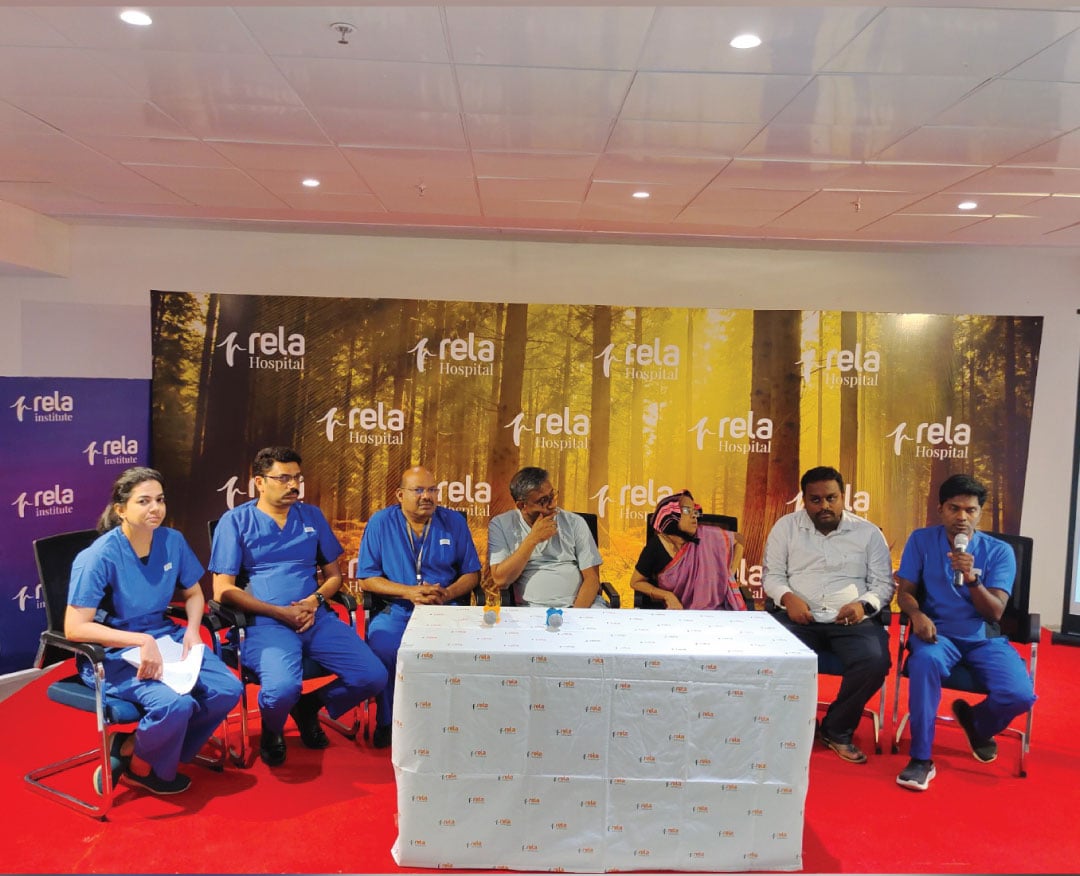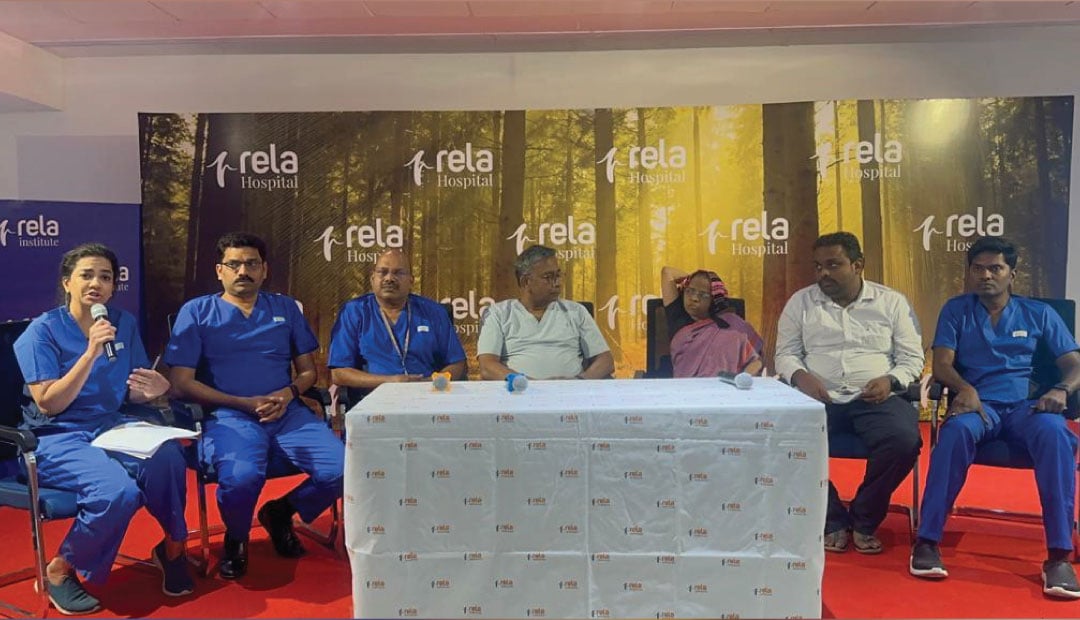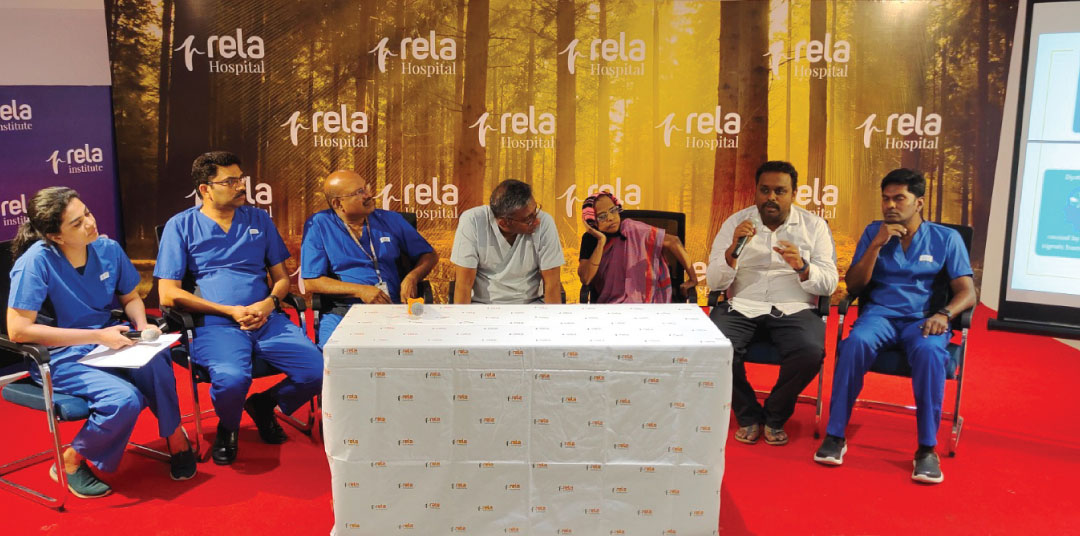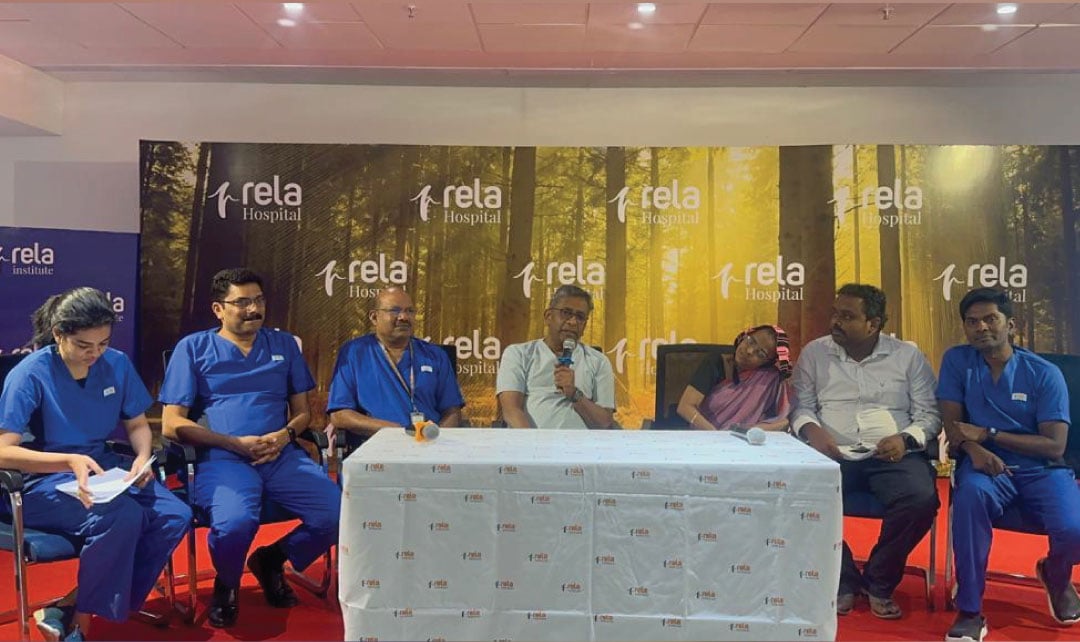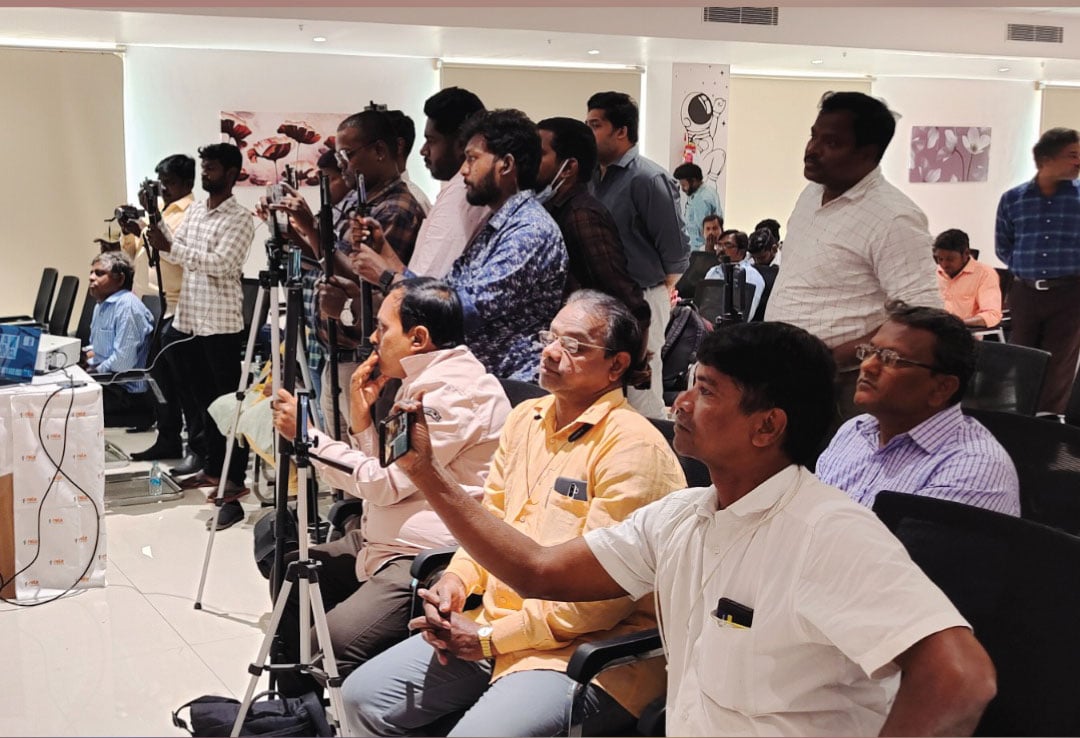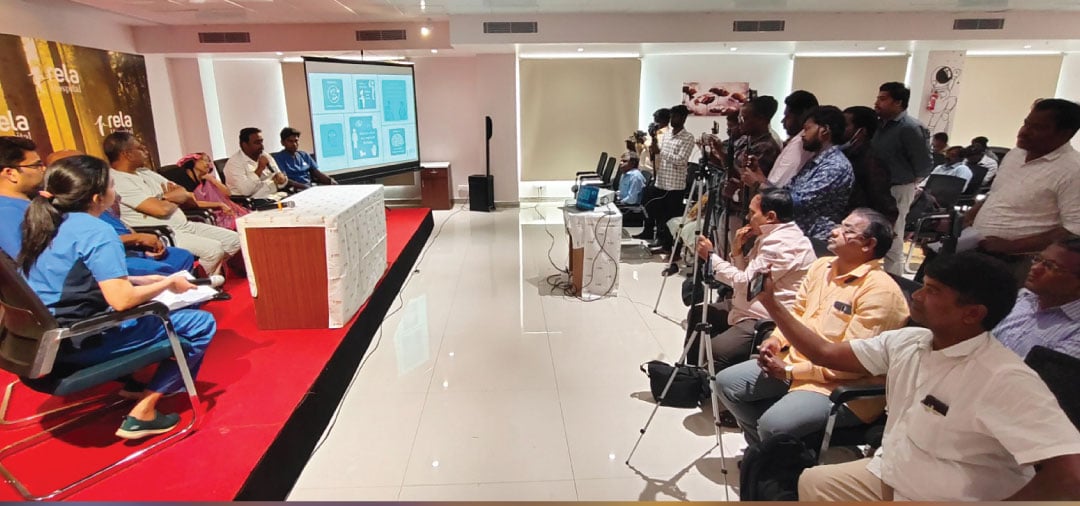Rela Hospital Performs Tamil Nadu’s First Deep Brain Stimulation Surgery on a Rare Genetic Movement Disorder
February 14, 2023
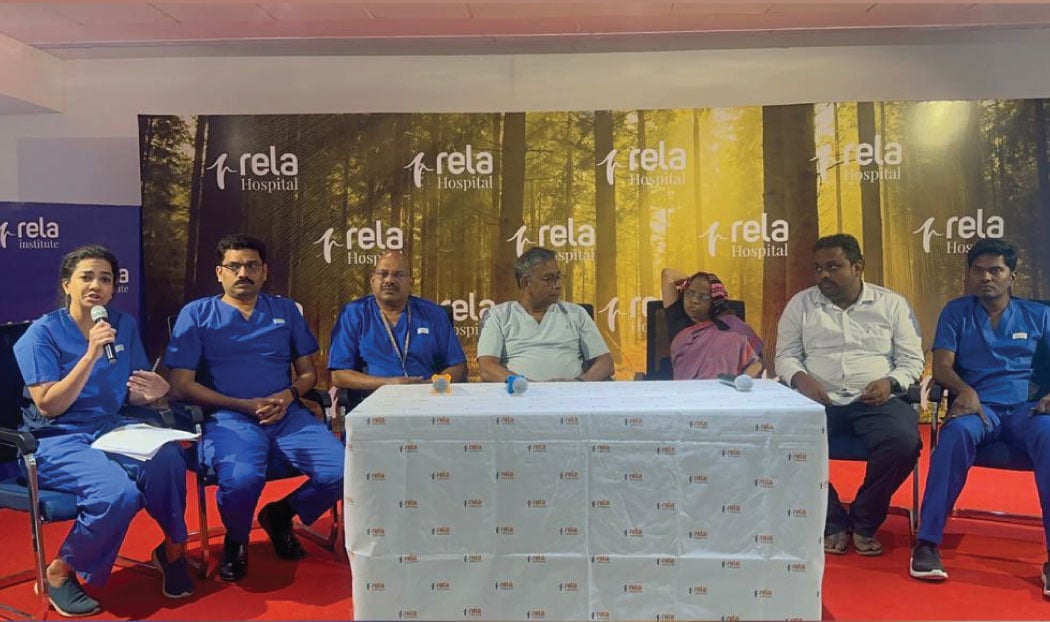
Worldwide, The Incidence of Dystonia is 16 / 1,00,000 people
Chennai, 14th February 2023: When Mrs. Shanthi Henry, a 57-year-old homemaker from Nagercoil was unable to speak or chew food due to her neck being pulled to one side of the body, further burdened by abnormal repeated movements of the head and trunk, and stiffness in the right hand nearly three years ago, she gave up on life. She further developed severe difficulty to sit on a chair, watch TV, walk normally or even have a little food as she was hampered by the involuntary body movements. She preferred to lie down in bed instead. She thought she was destined to live like this for the rest of her life.
Mr.Shine Henry, Mrs.Shanthi’s son who works in a placement cell of a reputed college in Chennai reached out to our specialist doctors. This is after numerous visits to doctors across the city. On arrival at Rela Hospital, a Team of Neurology experts led by Dr. Shankar Balakrishnan, Clinical Lead Neurology – Interventional Neurology & Neuromodulation, Dr. Anbu Selvam, Senior Consultant – Neurosurgery, Ms. Srimathy Narasimhan, Head – Speech & Swallow Pathologist, a Neuromodulation specialist, Neuro physiotherapist, and a Neuropsychologist evaluated the patient condition. After a thorough clinical examination followed by scans and genetic testing, she was diagnosed with Generalized Genetic Dystonia. Generalized Genetic Dystonia is a rare type of Dystonia with an incidence ratio affecting only 16/1,00,000 people in the world.
“When the patient came to us, she was in deep despair and held our hands for help to be free from the disease. Dystonia is a very complex, movement disorder that causes the muscles to contract on its own and uncontrollably. This can cause repetitive or twisting movements and affects one part of the body, two or more adjacent parts or all parts of the body,” said Dr. Shankar Balakrishnan, Clinical Lead Neurology – Interventional Neurology & Neuromodulation.
Dystonia results from abnormal functioning of the brain region that controls and coordinates movement. These brain regions control the speed and stability of movement and filter out unwanted movements.
“At first, the patient was offered injection therapy to the neck muscles as her response to medications were refractory and minimal benefits were seen with injection. Further, the movement disorder team evaluated her for Deep Brain Stimulation. This involves detailed examination and a structured scoring system including MRI & nuclear scans that gives clear information on the brain structure and functions,” Dr. Anbu Selvam, Senior Consultant – Neurosurgery.
The surgery team was led by Dr. Paraneetharan, Clinical Lead – Neurosurgery and Dr.Anbu Selvam, Senior Consultant Neurosurgeon. “Deep Brain Stimulation (DBS) is a safe procedure that involves implanting a hair-size electrode into the targeted area seated deep inside the brain. This electrode acts as a neurostimulator and eliminates unwanted movements and tunes the desired movements by delivering pulse signals with the help of a pulse generator. DBS is performed by the principles of functional neurosurgery which focuses on restoring neurological functions with a precise surgical target of anatomical structures and modulating the signals.”
“The procedure lasted for about 3 hours with on-table stimulation & recording of the response from the targeted site using neuro monitoring. The movement disorder team evaluated the stimulation effects with intraoperative stimulation when sedation was slowly tapered down. Further programming will be required to achieve long-term benefits,” added Dr. Paraneetharan.
Discharged after two days post a successful surgery, we witnessed significant reduction in the neck muscle pulling. Post completion of the entire rehabilitation session and programming of neuro stimulator, we are confident Mr.Shanthi’s quality of life will drastically improve,concluded Dr.Shankar Balakrishnan
